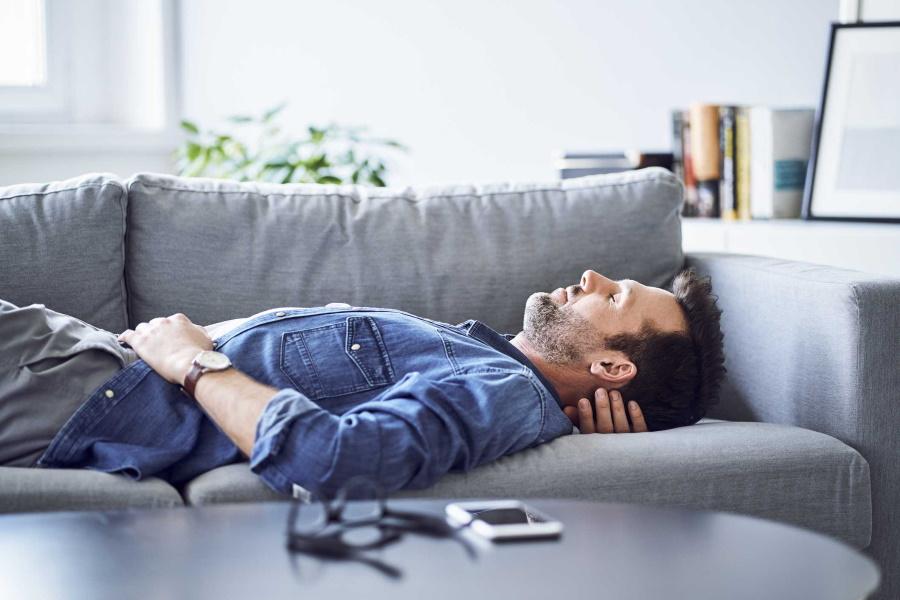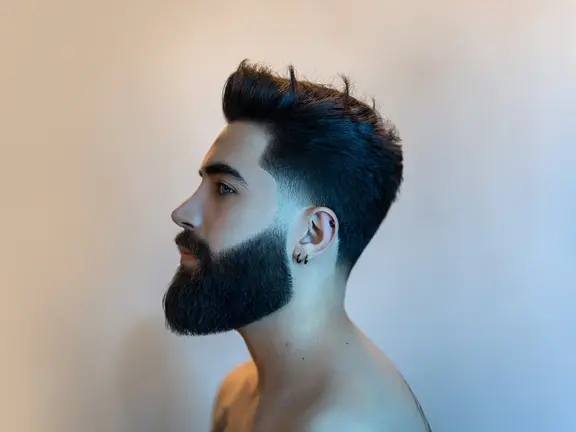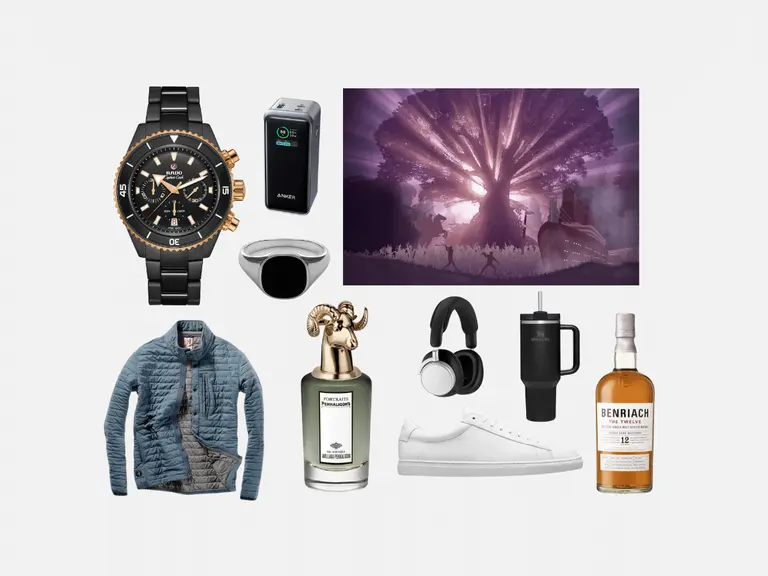
Published:
Readtime: 7 min
Every product is carefully selected by our editors and experts. If you buy from a link, we may earn a commission. Learn more. For more information on how we test products, click here.
It is not ideal to practice bad sleeping habits, but this has become the norm for many people. Some of these may include staying up late and getting up early or even catching up on sleeping hours during the weekends. Although no one can hardly blame you, we often end up sacrificing sleep time because there are so many things we need to do during the day that we often make up for lost personal time during the night.
However, we fail to realise that a good night’s sleep is one of the most crucial factors in maintaining high performance. Getting better sleep leads to more energy, increased output, and improved work efficiency, eventually freeing up more time for us to do more things.
To help answer this question, we’ve sought insights from Steve Grant, Director of Rushcutters Health. Steve has been in the fitness industry for over 22 years as a gym owner, university lecturer, and magazine contributor. He is considered one of Australia’s leading authorities in personal training and fat loss. Steve studied Physical Education at Wollongong University and has an elite sporting background in athletics, so he knows a thing or two about decent rest and recovery.
So this leads us to the core question: how do we get better sleep?
1. Stay Away from the Light
The best time to get your daily dose of sunlight during the day is between 6 am and 8:30 am, for at least 30 mins. During this period, your body clock is most responsive, and you get super energized from sucking up all of that light. At night, though, try to implement measures to reduce your exposure to blue light as much as you can.
2. Balanced Temperatures
You may not know this, but thermoregulation is one of the major influences on your body’s sleep cycles. 15-20 degrees is the ideal ambient temperature for the body to reach ideal controlled resting temperatures. Relatively, stress raises core temperature, so while you are worried about not being able to sleep, your core temperatures rise, contributing to your inability to sleep.
3. Timing is Everything
Our stress glands (adrenals) rest and recharge between 11 pm and 1 am. As a result, we get the best hormonal secretions and recovery between 10PM-2AM. Melatonin production has also shown to be at its highest between10PM to 2AM. To maximize these physiological processes, we need to help regulate our circadian rhythms by trying to stick to a schedule and going to bed at the same time each night so our body gets used to these resting phases.
4. Magnesium
Magnesium is a mineral that helps regulate many of our bodily functions. This includes blood sugar balance, optimising blood pressure, muscle relaxation, and calming the nervous system. A prominent symptom of magnesium deficiency is insomnia.
- Get your magnesium fix from these natural food sources: Dark leafy greens, avocados, nuts, seeds, and fish like halibut, wild salmon, and mackerel.
- Also, try these supplements: chelated magnesium. Pro tip: those ending in ‘-ate’ tend to be the best absorbed. Magnesium Citrate is a good choice.
- Get magnesium from skin products such as Epsom salt baths and magnesium oils.
5. Improve Air Quality
Fresh air carries ionic elements vital to health and good sleep, while stale or unmoving air has lost its negative charge and could interrupt sleep patterns. Keep fresh air flowing throughout the house by keeping the windows open regularly. If airflow is poor through your windows, the weather is cold, it’s noisy outside, or you don’t want unnecessary light during the night, you can use a negative ion generator that releases free electrons into the air to energize and freshen it.
6. Bring on the White Noise
White noise is a sound with volume proportions that are constant throughout the audible frequency range. It has the ability to ‘mask sound’, where it blends external sounds into its own, making it great for drowning out noises like traffic, barking dogs, loud TVs, etc.
7. Create a Sleep Sanctuary
Try to promote an environment where you only associate the bedroom with one thing: Sleep. Remove all screens, electronic devices, and work-related references to train your brain to associate your bedroom with rest and sleep.
8. Use Eye Masks & Ear Plugs
For an added level of sound and light control, look for great quality eye masks and earplugs that you can use during sleep to eliminate your sensory exposure to unnecessary light and noise.
9. Neurofeedback Technology
Insomnia is the result of producing excessive beta brain waves that detract you from sleep. In medicine, neurofeedback machines help train your brain to generate more alpha waves associated with calm, peace and meditation. These machines allow you to associate a specific sound with a resulting change in your brain waves. The more you use this process, the greater your ability to calm your mind and induce sleep during episodes of insomnia.
10. Meditation
Insomnia is commonly caused by an inability to calm the racing mind. Meditation trains the mind to relax. Similar to Nero feedback technology, it takes your mind off the beta brain waves down to the more relaxed alpha brain waves. Research shows that people who meditate regularly can better control alpha brain waves and can maintain a deeper and more relaxed focus.
11. Food, Alcohol, Physical Training
- When it comes to food, try to not eat directly before going to bed. Find that balance where you also do not go to bed hungry, perhaps only a little peckish. This prevents the possibility of your blood sugar dropping after you fall asleep, which could lead to an increase in cortisol production and decreased melatonin levels.
- Alcohol can relax you and help you fall asleep, but alcohol-induced sleep can also result in you waking up during the night and preventing delta slow wave sleep.
- Avoid physical training too late at night. Physical activity raises your core temperature, which could prevent you from falling asleep.
12. Sleep Anxiety Management
Studies indicate that the stress of lying in bed and worrying about falling asleep is far more damaging to your body than the lack of sleep itself. The anxiety that this brings on raises your core temperature, blood pressure, and heart rate, making it next to impossible to fall asleep. If this sleep-related stress is not managed, all the other tips in this article will probably have a limited effect. So, how do you break this cycle?
- Stop trying to fall asleep. Some things cannot be forced.
- Focus on your breathing, relaxing, and keeping a calm internal state.
- Adjust your mindset and be indifferent towards getting to sleep. This takes the pressure off and relaxes your mind and body so you fall asleep naturally.
Paradoxical Intention Therapy is also one of the preferred treatments for insomnia. The philosophy behind this method is trying to stay awake to fall asleep. During insomnia, therapists tell their patients to tell themselves mentally what they want to happen the next day:
- “I’ll feel terrible tomorrow; I’ll be unable to cope” is a negative outcome and sets the scene for this to happen.
- “I’ll be fine, and I’ll sleep well tomorrow night” is a positive outcome that sets the stage for this.
13. Check out Dr. Parsley’s Sleep Remedy
Dr. Parsley was a Navy Seal in the US Military who is an expert of sleep medicine. He refined a sleep formula during his many years with the Navy Seals and was so successful that it’s now available to the general public. This sleep remedy is not an actual drug but a combination of nutrients involved in the production of melatonin—namely L-tryptophan, 5HTP, Vitamin D3, Magnesium, GABA derivative, etc. With this, you are not knocked out like with a sleeping tablet. On the contrary, you provide your body with the nutrients it needs and do all the work. The best part is that there is no addiction or hangovers with this type of treatment. Read up on Dr. Parsley’s Sleep Remedy for complete details.


































Comments
We love hearing from you. or to leave a comment.